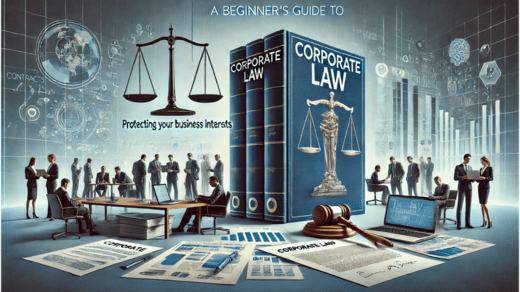1–10: Business Formation
What is corporate law?
Corporate law deals with the formation, operation, and regulation of corporations, with a focus on shareholder, director, and stakeholder rights.
What are the main types of business structures?
Sole proprietorships, partnerships, LLCs, and corporations (C Corp, S Corp).
What is the difference between an LLC and a corporation?
An LLC provides flexibility and pass-through taxation; a corporation provides limited liability and easier access to funding but involves more formalities.
Read Also:
- https://insightfullawhelp.com/20-corporate-law-questions-startups-frequently-ask/
- https://insightfullawhelp.com/30-corporate-governance-questions-answered-for-entrepreneurs/
- https://insightfullawhelp.com/25-corporate-law-challenges-and-how-to-address-them/
Why do I need to incorporate my business?
To minimize personal liability, achieve tax benefits, and add credibility.
What are the documents to create a corporation?
Articles of incorporation, bylaws, and other filings required by state law.
How do I choose the best legal structure for my business?
Liability, tax, funding requirements, and long-term goals.
What is a registered agent?
A person or organization authorized to receive legal documents on behalf of the business.
Must I file my business as a resident of every state?
Only those states in which your business does business or otherwise maintains a significant presence.
DBA (Doing Business As)?
The name by which a business trades that is different from the business’s legal name.
Corporate bylaws?
Internal operating rules of a corporation, such as director’s role and conduct of meetings.
11–20: Corporate Governance
What is corporate governance?
Framework of rules and practices by which a company is directed and controlled.
Shareholder Agreement
A shareholder agreement is essentially a contract among shareholders outlining voting and the transfer of shares, as well as rights and obligations.
Role of the Board of Directors
It oversees the company’s management; sets strategy, and holds everyone accountable.
Fiduciary Duties
Directors are under a fiduciary duty-legal responsibility that they act for the best interests of the corporation and its shareholders.
What is a quorum in corporate meetings?
The minimum number of participants required for a meeting to make decisions legally.
What is the role of the corporate secretary?
To maintain records, organize meetings, and ensure compliance with governance laws.
What are the responsibilities of a CEO under corporate law?
Managing daily operations while adhering to the board’s strategic vision and governance standards.
What are corporate minutes?
Copies of discussions, votes, and resolutions of boards and shareholder meetings.
Independent Directors
Board members without material relationships with the company, to help govern independently.
Conflicts of Interest
Declaration of interest; abstain from voting on the matter; accordance with the corporation’s policies.
21–30: Compliance and Risk Management
What permits and licenses will I need for my business?
They are specific to your industry and what is allowed in your area of operation. Research local, state, and federal requirements.
What is the importance of compliance in corporate law?
To avoid legal penalties, maintain reputation, and operate ethically.
What is liability protection?
Shielding personal assets from business debts or lawsuits by forming a corporation or LLC.
What is the importance of annual reports for corporations?
Annual reports update the state on your business status and ensure good standing.
What is a corporate veil?
The legal separation between a corporation and its owners, protecting personal assets.
Can the corporate veil be pierced?
Yes. If corporate formalities are overlooked or fraud, courts can even pierce to hold owners liable personally.
What is an indemnification clause?
A provision that makes directors and officers immune from actions taken in good faith.
What is a compliance program?
The framework that protects a company adhering to lawful and ethical principles.
What happens if corporate formalities aren’t maintained?
Loss of protection from liability with possible legal fines.
What is whistleblower protection?
Laws protecting employees who report illegal or unethical activities within a company.
31–40: Contracts, Funding, and IP
What are the basics of a business contract?
Offer, acceptance, consideration, mutual consent, and legal purpose.
What is a breach of contract?
Failure to fulfill the terms agreed upon in a contract.
What is intellectual property (IP)?
Creations of the mind, like trademarks, copyrights, patents, and trade secrets.
How can I protect my IP?
Register trademarks, copyrights, and patents; use confidentiality agreements for trade secrets.
What are convertible notes?
Debt instruments that convert into equity during future funding rounds.
What is a SAFE agreement?
A Simple Agreement for Future Equity, used to raise funds without immediate equity issuance.
What are securities laws?
Regulations governing the issuance and trading of stocks, bonds, and other investments.
What is a term sheet?
A non-binding agreement outlining the terms and conditions of an investment.
What is equity dilution?
Dilution of ownership percentage when new shares are issued.
What is a non-disclosure agreement?
A contract to protect confidential information shared between parties.



